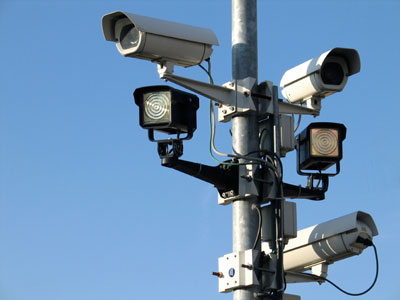
Forget the nomenclature of “Generation Y,” the “Echo Boom,” the “Internet Generation (iGen)” or the “Millenials,” my generation is Generation Distraction. We are they born between the years 1980 and 1990. Reared amongst cell phone chatter, SMS, Facebook wall posts, Twitter updates, AOL instant messages, MySpace messages, blog updates, and 700 channels of glowing digital cable. A vast churning stream of flickering, buzzing, shouting, singing, pinging assaults our eyes and ears at all hours of the day and night. Like newborns victims of fetal alcohol syndrome, we’ve become so bathed in this plenum of media and communication that any abrupt break triggers instant withdrawal. Witness the life-threatening Blackberry blackout last month.
Is there a codeine for the media fiend?
I was close enough to the 1980 end of my generational spectrum to see Generation Distraction to become deeply and inextricably linked to a nascent early-internet culture. The World Wide Web inaugurated the “internet superhighway” (my how quaint that term seems today!) in the late 1980s, and the Mosaic browser kicked off the mass-consumption of the Internet in 1993. Came AOL in 1991; Yahoo, Amazon.com and eBay in 1995; AOL Instant Messaging in 1997, MySpace in 1998, and finally Google in 1999. “The Facebook” launched in 2004, with my alma matter Georgetown being among the first outlets. In college, Facebook so permeated the social sphere that whole nights out were given purpose through the quest for a funny-awesome-sexy profile picture to be uploaded the following Sunday morning (or early afternoon, rather).
Yes, today, Generation Distraction not only consumes every available hour through various media of telecommunication, but we sort and define our very lives and identities through them.
Who am I? I am Geoffrey Daniel Greene, and I’m friends with (…), I like (…) genre of music, I’ve read the following books (…), my favorite TV show is (…), I support (…) for president, I think this link of (…) is funny, last weekend I was at (…) party—here are the pictures… But, then again, are all these things true in real life? I have, after all, carefully crafted my online persona for certain ends.
“Maybe I hated Ulysses, but I want to seem smart, and I know that cute girl from my literature theory course is watching. Better put up a profile picture of me with two girls, it will make me look desired. I hope my ex isn’t checking my profile these days, she’ll leave another snarky wall post. Better block her. But what if she finds out I blocked her? Oh damn, wasn’t I supposed to be writing my paper?”
Instead of facilitating “social networking,” the social network technologies themselves are the end. You don’t Facebook to socialize, you socialize to Facebook. Everything you do is documented, uploaded, and given instant feedback. The number of friends one tallies; the frequency of messages, posts, and comments; the intangible “cred” garnered through one’s online personality—these are the social currency that we desperately accrue. You are being watched, but not just by The Government. In the sequel to Orwell’s dysptopic dream, you are watched not by Big Brother, but by your peers. You voluntarily and desperately submit to constant surveillance and judgment. Thus is Generation Distraction also known by its other avatar, Generation Panopticon.
“Panopticon” referring to English philosopher Jeremy Bentham's 1785 prison design allowing an observer to observe (“-opticon”) all (“pan-“) prisoners without the prisoners being able to tell whether they are being watched, thereby conveying the "sentiment of an invisible omniscience." In the parallel life of Facebook, you are aware of being watched, but the magic is you can never tell by whom. You are judged and sorted hierarchically instantly and decisively, but it’s not clear who populates your jury. It’s vitally important to “win,” however. The Economy of Attention--discussed earlier here--values “eye-hours” above all things, and he who garners the greatest share of a discrete amount of attention is the “richest.”
Bentham's “Panopticon” design
Obviously, there is a sizable dark side to Generation Distraction. Ironically, the overdose of communication has suffocated our communication ability itself. Flooding our receptors with stimuli has deadened their sensitivity. Generation Y is widely reported by managers to be deficient at workplace communication, suffering especially poorly from deplorable writing ability, nonexistent spelling, and whimsical notions of grammar. Nor does this end at the page. Face-to-face contact has ironically been rendered rather quaint by the efficiencies and global reach of personal communication technologies. Generation Panopticon is very comfortable with the reciprocal surveillance of watching and being watched—from a distance.

Do an experiment. Sit down several of your favorite Generation Y members in a room…without a television or a computer. See what happens. (Clue: awkward silence and fidgeting immediately set in). On a long enough time scale, your chosen group will begin to whip cell phones out of their pockets like asthma inhalers for a Content fix. Then they will carry on phone conversations in the hallway or Google sports stats on their iPhone, en lieu of facing the terrifying intimacy of a room full of fleshed people and no screens.

(If aliens visit earth tomorrow, they might assume that the tiny black things we hold tightly over our ears whenever we're walking are protective earmuffs, intended to shield the delicate inner ear from the elements)
The only solution a sudden and unexpected drought of digital Content is liberal portions of light beer (or weed) to deaden the pain of withdrawal from Content. Even then, what conversations transpire will inevitably veer to Grey’s Anatomy or the last funny YouTube video watched. Again, the plenum of Content has among my generation completely replaced actual interpersonal experience with vicarious media representation and disembodied communication.
This inability to converse obviously makes dating difficult, and that practice seems to have subsided as well—with reverberative effects to rates of marriage and childbearing. I wonder too how my generation will handle the challenges of creativity and innovation. If you are under constant reciprocal surveillance, and constantly consumed with the requirements of instant peer validation, how can you truly create something unique and revolutionary? How will you have the space to develop as an individual when you are diluted in a soup of impersonal co-dependency? Will the omnipresent Facebook Panopticon be an even more efficient tool for enforcing conformity than centralized Big Brother? Will this generation inherit an America that has lost its unique character as a nation of kooky basement tinkerers and cultural revolutionaries?





Great insights, Geoffrey. I enjoyed this post.
ReplyDeleteI thought you'd be interested, I used a quote from your post in my defense of Gen Y at:
http://www.businesscasualblog.com/2008/10/td-blog-the-inv.html
wow, i love this post. as i'm also a part of this generation and an avid facebook user (i don't text because i can't imagine having to use my phone for such a purpose), i've thought about this quite a lot lately. my generation has extreme communication problems, when it comes to face-to-face in the flesh communication. and it has definitely trickled down into the arena of dating, and promptly made dating a thing of the past. well, it has altered dating, for the worse anyway. trying to date in the 21st century is one of the most difficult feats because of how much we've lost our ability to communicate in person.
ReplyDeletebut thanks so much for this post. i can't tell you how difficult it is to just sit around a bunch of my peers sometimes and try to spark conversation, without someone whipping out their cellphone to text a friend. it's so annoying.